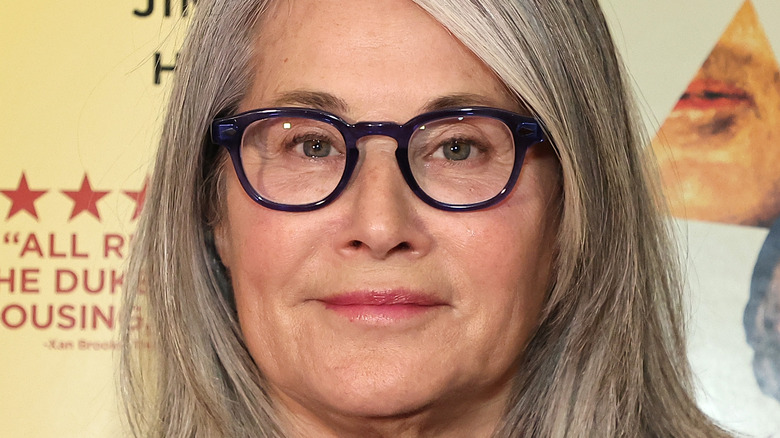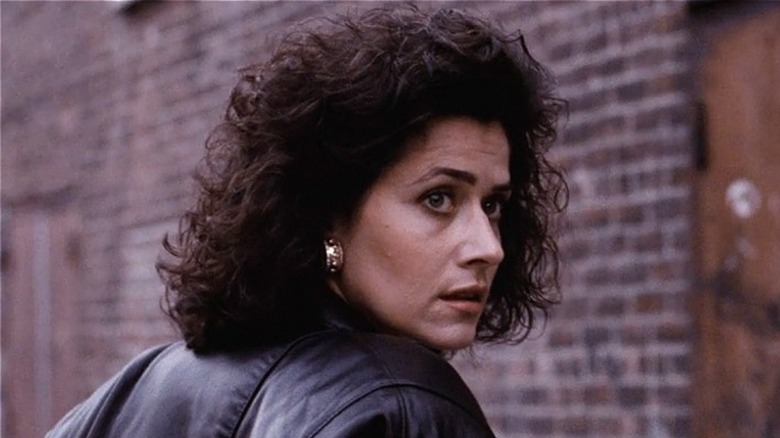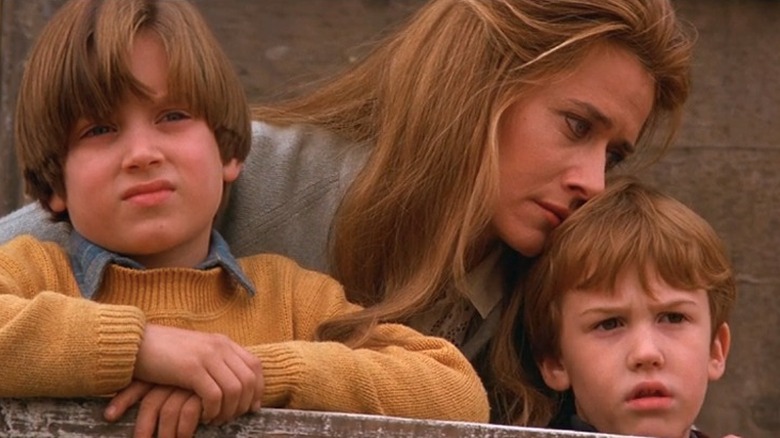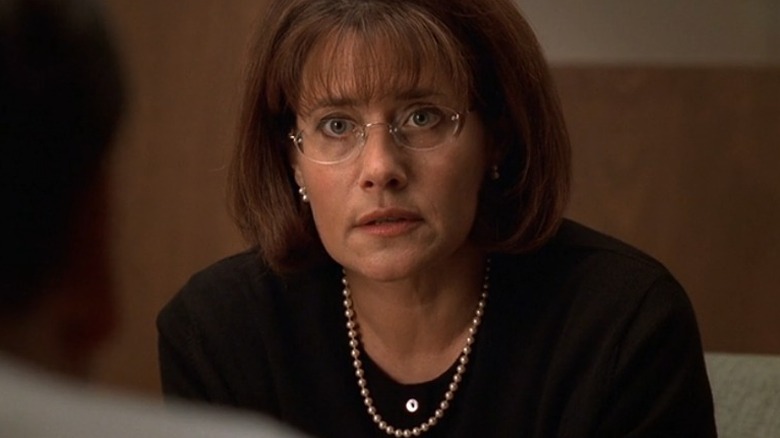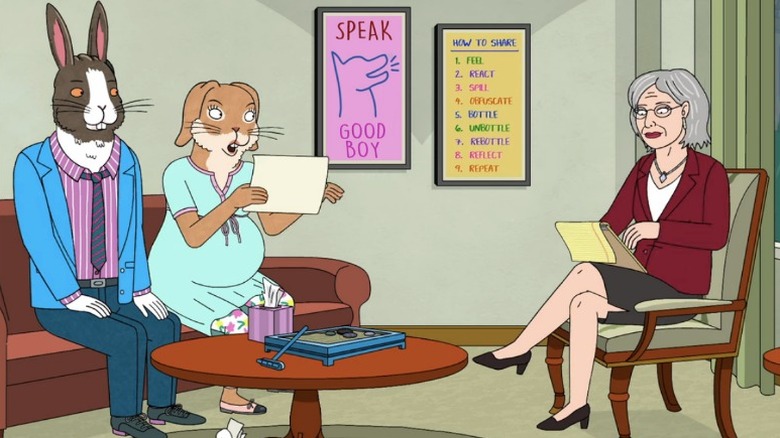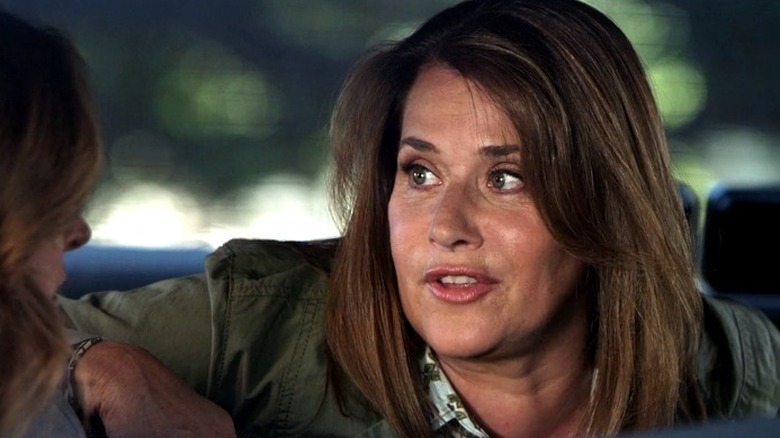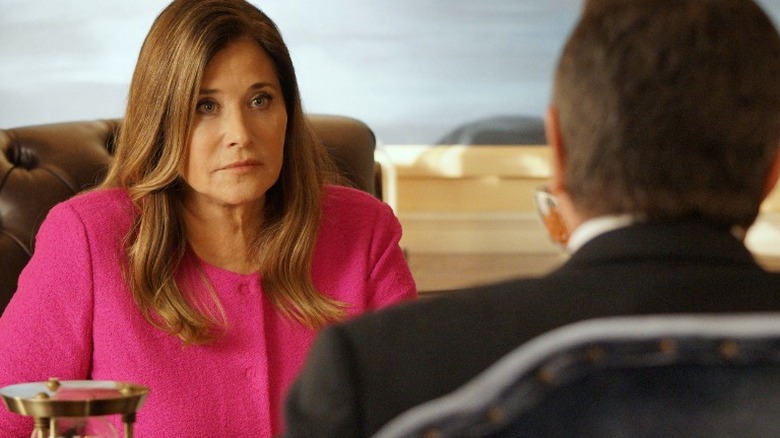Why Sofia From Disney's Live-Action Pinocchio Sounds So Familiar
In recent years, Disney's move from making semi-original, animated films to live-action remakes of its own (original animated) films has met with varying degrees of success. While Kenneth Branagh's "Cinderella" had critics and audiences swooning, the innovative and dazzling effects of 2016's "The Jungle Book" felt far less wondrous in 2019's superfluously exact retelling of "The Lion King" (via Rotten Tomatoes), while 2017's "Beauty and the Beast" — with its early aughts prom dress, awkward self-awareness, and inconsistently successful tweaks and additions — prompted one critic to call it "two hours of a movie quietly apologizing for existing even as it launches into another group number" (via Ars Technica). So now, Disney will wave its live-action nostalgia wand and powerhouse streaming service over another beloved classic. This time, it actually makes some creative sense — "Pinocchio" is, after all, a story about a boy becoming real.
In addition to having at least some semblance of thematic 3D relevance, the new iteration boasts a star-studded cast that includes Joseph Gordon-Levitt, Keegan-Michael Key, Cynthia Erivo, and, wonder of all wonders, Tom Hanks, in the role of literature's kindest, gentlest spin on Dr. Frankenstein, Pinocchio's mentor and maker Geppetto. But Hanks isn't the only national treasure to grace the film's formidable list of players. If the clever seagull in the film's trailer sounds familiar to you, there's good reason for that: the character (Sofia) is brought to life by one of the most recognizable voices in Hollywood.
Lorraine Bracco was Karen Hill
The actor behind Sofia, Lorraine Bracco, has lent her distinct voice and charisma to a variety of genres but may be best known for her part in gangster story history.
In 1990, Martin Scorsese turned Nicholas Pileggi's "Wiseguy" — the non-fiction story of Lucchese associate-turned-informant Henry Hill — into one of the most definitive mobster movies of all time: "Goodfellas." The film upheld the gritty, intimate realism and uncomfortable relatability of "The Godfather" parts I and II but wove in the kind of dark humor that viewers would come to love in "Sopranos." What's more, it proved that an extended voice-over could be more than a crutch for lazy storytelling.
A not insignificant portion of that voice-over comes from Henry's (Ray Liotta) wife, Karen (Bracco). Karen's ability to challenge Henry's authority, her hilarious introduction to mafia wifedom, and her viewer-mirroring descent from innocent outsider to Henry's champion are part of what sets the film apart from so many other (non-"Godfather") gangster stories. Like (and yet, in a way that is completely unlike) Diane Keaton's Kay Adams, Karen Hill is as integral and dynamic an element of the film as any of its titularly-referenced men. In fact, Bracco's character is so vital to "Goodfellas'" specific complexity and tone that in 2015, in response to a baffling New York Post "hot take," Decider's Briana Fasone argued that Karen is "the true center" of the film. In 1992, Bracco starred in another early 90s classic, albeit in a vastly different genre.
And Pinocchio isn't her first Tom Hanks movie
A decade after Stephen Spielberg's "E.T." used fantasy and metaphor to explore the dynamics of a broken family through the eyes of a child, director Richard Donner tackled a darker and more direct investigation of these themes in "Radio Flyer." In the film, Bracco plays Mary, the struggling single mother of Elijah Wood's Mike and Joseph Mazzello's Bobby. To save Bobby from their abusive, alcoholic stepfather, the brothers attempt to turn their Radio Flyer wagon into a flying vehicle and are surprisingly, literally (aka symbolically), successful in their endeavor. "Radio Flyer" sees Bracco star alongside future "Pinocchio" cast mate Hanks, who portrays the adult Mike and narrates the film.
Today, "Radio Flyer" is the kind of film that audiences love (via Rotten Tomatoes) for its nostalgia and sentiment but that critics see as a lesser version of a far more successful predecessor. In his scathing summary and review of the film, Roger Ebert wondered how Bracco's Mary could be ignorant of her son's injuries, presented its premise and ending as essentially appalling, and wondered who, exactly, the film was for, asking, "What kid needs a movie about a frightened little boy who is at the mercy of drunken beatings? What adult can suspend so much disbelief that the movie's ending, a visual ripoff from 'E.T.,' inspires anything other than incredulity?"
Luckily, the film's critical reception didn't, by all appearances, stand in the way of Bracco's ascent.
If you or someone you know may be the victim of child abuse, please contact the Childhelp National Child Abuse Hotline at 1-800-4-A-Child (1-800-422-4453) or contact their live chat services.
Casting Bracco in Sopranos was a stroke of genius
James Gandolfini's Tony Soprano may have been the "main" protagonist of HBO's revolutionary gangster series, but Bracco's character (psychiatrist Dr. Jennifer Melfi) is, in terms of her narrative functionality, the most important character. That Melfi serves as a viewer proxy isn't, and isn't intended to be, a subtle maneuver, and that overtness only contributes to its effectiveness. Bracco's shrink allows our intrepid anti-hero to break the fourth wall without breaking the fourth wall and to demonstrate a vital, depth-creating vulnerability. Without the insights we're able to glean from his conversations with Melfi, the Soprano patriarch would be, at best, not quite likable or relatable enough for a full 6 seasons and, at worst, too much of a caricature to serve as the story's central figure.
So it's perhaps not all that surprising that Bracco, in a recent episode of the "Talking Sopranos" podcast, expressed some disappointment with her character's abrupt end-note. "I would have liked it to have been more meaningful," she explains, adding that "[Melfi] really cared for him. You don't spend seven years with someone and discard them. I felt bad about that" (via YouTube).
Despite the characters' distinct personalities, Melfi's importance mirrored the functional and tonal significance of her "Goodfellas" character, and though Karen crosses lines that Melfi's indefatigable morality simply won't allow her to, her casting in the series seems an obvious nod to her gangster legacy — not unlike her voice work in another series.
Bracco lent her well-known voice to drastically different projects
Bracco has lent her instantly recognizable voice and thick Brooklyn accent to both animation and voice-over narration. In 2011 — and in a clever nod to her career up to that point — viewers tuning in to Season 1 of the true crime series "I Married a Mobster" were met with the familiar sound of the voice of one of cinema's most famous mobster wives, Karen Hill. "She thought she married her Prince Charming," begins Bracco's opening credit voice-over, "but soon discovered he was living a dangerous lie. Was he a protector or her worst nightmare? When you're married to the Mob, ya don't ask, and ya don't tell; until now..." Bracco's voice and its associations create a weight and tension atypical of the genre, something akin to what Peter Thomas did for the original "Forensic Files."
Five years later, Bracco would find herself in the therapist chair once again. In another nod to a former character, the actor portrays couples counselor Dr. Janet in Raphael Bob-Waksberg's Emmy-nominated animated series "BoJack Horseman." The story's universe blends talking animals with regular 'ol cartoon humans and allows it to land some pretty wonderful punchlines and commentary through Bracco. For instance, the poster about communication on her office wall reads "Speak" and "Good Boy," a dog reference made all the more hilarious because of the viewer's familiarity with Bracco's last patient, Tony Soprano. In her next major TV role, Bracco once again embraced her comedic side.
And brought charisma and comedic relief to an underrated gem
Janet Tamaro's "Rizzoli & Isles" was a bit of a revolution for the police procedural's theretofore simplistic and one-dimensional portrayal of the "badass female detective." As Pop Matters Lesley Smith observed, "The show's focus on the Rizzoli family-and-friends nexus (cajoled, shepherded, nurtured and, most of all, fed, by Lorraine Bracco as Jane's mother Angela) has it exploring the usually unattached leads' experiences not as if they're waiting for heterosexual coupledom, but as these might be an emerging norm."
Both Angie Harmon's Jane Rizzoli and Sasha Alexander's Maura Isles demonstrated a relatability and vulnerability rarely seen, at that time, in strong female protagonists. What's more, though the series could never quite figure out if it was a comedy or a drama, Bracco's Boston mama bear seemed to embody both approaches at once, in a way that made sense for her character. Angela is, on the one hand, your stock, needy and nosy mother to two adult children — she falls for internet schemes constantly, is aggressively focused on finding her son a good wife, and tells Isles (more or less) that she'd be great at forensics because she always guesses the killer in detective novels.
On the other hand, Angela embodies the implied emotional difficulty that comes with realizing that one must caretake and protect their own parent. It's one of life's more difficult transitions, and thanks to the authenticity with which Bracco approached what could have been a caricature, it wasn't one the series ever had to spell out for its viewers.
Bracco is Mayor Margaret Dutton
"Rizzoli & Isles" wasn't Bracco's last leap to the other side of the law. In Season 8 of CBS' "Blue Bloods," Bracco stepped in as interim Mayor Margaret Dutton. Dutton appeared in just five episodes, but her character's dislike of Tom Selleck's series patriarch Frank Reagan (like every other mayor on the series) elicited some pretty vitriolic opinions from the "Blue Bloods" fandom.
While some early fan chatter revolved around the hope that the opposing characters might ultimately make for interesting, if impractical, love interests for one another (per Matt & Jess), the majority of audience response revolved around condemning Bracco's character as inept and out of her depth (per Reddit). At least one fan, however, explored the series' long struggle to write characters who aren't entrenched in the law enforcement way of life and saw Dutton as a missed opportunity for the series to present Frank (and his general mindset/side/approach) with a worthy and viable adversary.
In addition to her most notable roles, Bracco has starred in a litany of television series, shorts, and films, including "Lipstick Jungle," "Law & Order: Criminal Intent" and "Trial by Jury," and BBC Three's "Jerk." Her resume speaks for itself, but if she had to speak for it, it would be with a voice so distinct, genre-defining, and beloved that it can't help but enhance Disney's upcoming self-remake.
